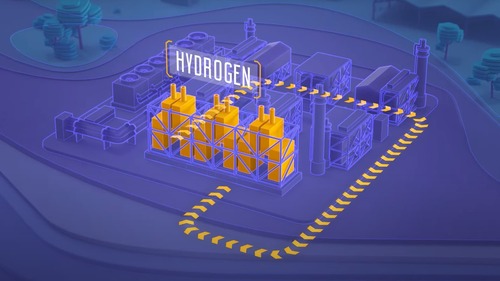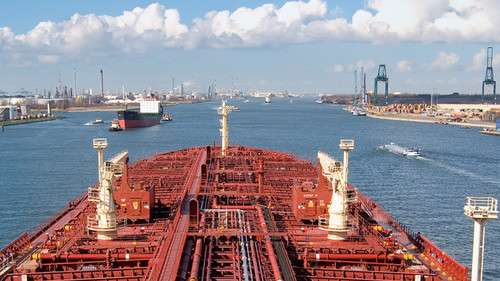Flemish Minister of Environment Zuhal Demir grants INEOS Olefins Belgium permit for Project ONE in Antwerp
Flemish Minister of Environment Zuhal Demir has granted the environmental permit to INEOS Olefins Belgium for Project One. This clears the way for the construction and operation of the most sustainable steam cracker in Europe. Preparatory works for the construction are anticipated to start this summer.
In developing this production site in Antwerp, INEOS Olefins Belgium will comply with the most stringent environmental regulations. The site will contribute to the renewal and sustainability of the chemical cluster in Flanders. The ethane cracker of Project ONE will have the lowest carbon footprint in Europe: three times lower than the average European steam cracker and less than half of that of the 10% best performers in Europe.
John McNally, CEO INEOS Project ONE, stated: I would like to thank the Minister for her decision. In doing so, Flanders is showing that it is supportive of sustainable investments and economic growth. We have set the bar high and submitted a solid and comprehensive permit. I am proud for our entire team that these efforts have been rewarded with a favourable decision. The urgency of tackling the climate problem is now clear to everyone. With Project ONE, we do not want to stand on the sidelines as an industrial player, but want to make a fundamental difference now. By consistently opting for the best available technologies in our design, we are establishing a new environmental standard within our sector.
Investing in Europe
Project ONE will give a new impulse to the chemical cluster in Antwerp. By bringing technological renewal the company aims to strengthen the resilience of the European chemical industry in a global economy. Over the past twenty years investments of this magnitude (over 3 billion euros) have gone mainly to regions such as China, the United States and the Middle East. INEOS Olefins Belgium is breaking with this trend, and has opted for Antwerp, the region with which it has developed a special relationship since the Group's very first activities were launched in the port of Antwerp. The investment will create 450 direct jobs and thousands of indirect jobs.
Ethylene with the lowest carbon footprint
Today, buyers of ethylene, one of the most widely used base chemicals, are reliant on existing and often outdated plants that use mostly naphtha, a derivative of crude oil, as feedstock. Project ONE, which uses ethane as feedstock, offers an alternative with a substantially lower carbon footprint. Compared to the average naphtha cracker, this amounts to a reduction of 2 million tonnes of CO2 emissions on an annual basis.
From the start closest to just zero
Project ONE is already making a fundamental difference from the start-up by making maximum use of the very best of today's technology. By reusing hydrogen from the cracking process, we are already able to meet 60 percent of the cracker's heat consumption with a zero-carbon energy source. Thanks to the highly integrated systems in the design, the coolness of the raw materials and the heat from the furnaces are optimally used to save energy. In addition, all externally-sourced power is contractually sourced from renewable offshore wind energy.
Thanks to these efforts, the plant will have the lowest carbon footprint of all crackers in Europe from day one. The plant is therefore well ahead in realizing a further reduction of emissions to net zero as soon as new technologies become industrially scalable.
Indeed, the plant design includes the necessary flexibility to integrate other technologies as soon as they become mature, such as carbon capture and storage and increasing the use of hydrogen as a low-carbon fuel to 100% as climate-friendly hydrogen becomes available. Electrification of the crackers will also be considered when the technology becomes industrially applicable.
Project One aims to become climate neutral within 10 years from the start-up of the cracker, using one or more of the above technologies. The target year for operation is 2026 as construction will take approximately 4 years.
Latest news
INEOS launches €250m investment supported by the French Government to secure the future of French industry at Lavera
The project marks the first phase of a long-term regeneration plan to reduce emissions, boost reliability, efficiency and competitiveness, with support of the French State.
Hycamite’s technology to decarbonize shipping awarded AiP by industry leader DNV
Kokkola Industrial Park →Hycamite’s proprietary Thermo-Catalytic Decomposition (TCD) technology offers a new approach to producing clean hydrogen by breaking down methane, the primary component of liquefied natural gas (LN...
Clariant catalysts will power the Ecoplanta: Europe's first waste-to-methanol plant
Chemmed Cluster Tarragona →Repsol is building Europe’s first plant to produce renewable methanol from urban waste The facility will use Enerkem gasification technology to produce 240 KTA of methanol Clariant will supply cata...
Lilly plans to build a new $3 billion facility to boost oral medicine manufacturing capacity in Europe for patients worldwide
Netherlands site will bring 500 manufacturing and 1,500 construction jobs while further strengthening Lilly's global supply chain


